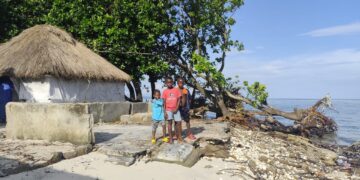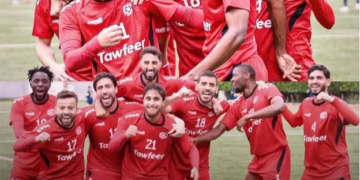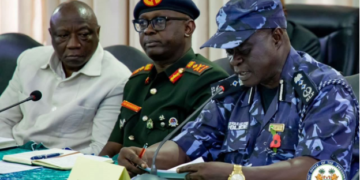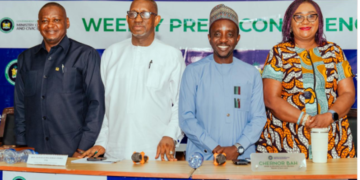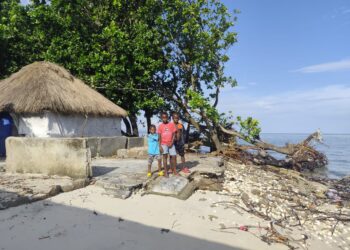By Alpha Amadu Jalloh, Author of “Monopoly of Happiness: Unveiling Sierra Leone’s Social Imbalance”
Freetown, Sierra Leone, Today, Sierra Leone is a country trapped in a tragic dance with poverty, not merely economic poverty, but one of courage, integrity, leadership, and vision. We are a nation blessed with abundant natural resources, a youthful population, and a history of resilience. Yet, here we are, living in fear, scarcity, and submission.
Our people are weak, afraid, and scared to rise and demand what is rightfully theirs. It’s not because they don’t know the truth; it’s because the price for truth has become too high in a country where leadership has been weaponized against the very people it was supposed to serve.
Sierra Leoneans today lack almost everything, from clean water to decent education, electricity, quality healthcare, and basic human dignity. The people entrusted to support and uplift us are the very ones turning the screw of oppression and shame.
From the Office of the President down to the minor political cronies who’ve tasted a drop of power, there is a growing culture of entitlement, disrespect, and disdain for the common man. We are living in a time when state institutions have become instruments of suppression, when certain men see themselves as above the law, untouchable, unquestionable, and irreplaceable.
Let us talk about one such man, widely referred to as the self-proclaimed “Chairman of everything.” Though he was beaten in an election in 2023 by an unknown woman, some believe he remains one of the most controversial political actors in the country. He is known for his arrogance and disdain for people under his authority.
Today, he commands serious political influence. Still surrounded by controversy, he occupies key leadership roles in his political party and uses his position as a presidential adviser to intimidate others, citizens who dare to speak in their place of birth, simply because they’ve fallen into his personal firing line.
What moral authority does he have to silence anyone when he himself is not trusted and considered a prodigal son in the SLPP? But here in Sierra Leone, the more arrogance you’re wrapped in, the more powerful you become if you’re close enough to the seat of power. This is not an isolated example. It is part of a larger, dangerous trend.
Our leaders have built a fortress around themselves, a protective barrier made of political power, personal loyalty, and calculated silence. Those close to the President, including his children, friends, other relatives, political allies, and some ministers, are practically untouchable. They violate laws, abuse their positions, and enjoy public perks with zero accountability.
While citizens walk miles to get drinking water and students struggle under blackout conditions, government officials and their children ride in expensive vehicles with police escorts, those very police who wouldn’t blink if ordinary citizens were harassed, beaten, or arrested for raising their voices.
It sometimes feels like we are being governed by a cartel. It is as if Sierra Leone has been handed over to someone like Jos Leijdekkers, the infamous Dutch drug lord, because the operations of state power mimic the ruthlessness and impunity of a criminal enterprise.
Look at Alusine Kanneh, the disgraced former immigration boss. He was dismissed over serious allegations of corruption and misuse of office. Yet today, he walks around freely, attending public events, unbothered and untouchable. No police officer dares to question him. The Anti-Corruption Commission remains conveniently blind to his existence.
Why? Because once you’ve dined with the elite, you’re above the law in Sierra Leone.
This is the Sierra Leone we are living in today, where loyalty to political power is rewarded more than loyalty to the nation and where being in proximity to influence is enough to grant lifelong immunity from the rule of law.
Our society has become a marketplace of fear. Teachers are afraid to teach the truth. Journalists are afraid to write the truth. Civil servants are afraid to challenge wrongdoing. Ordinary people are afraid to protest.
Fear has become our national anthem. Silence has become our constitution.
This is not the Sierra Leone that our ancestors envisioned. It is not the reward for those who gave their lives in the pursuit of justice, democracy, and development. We have gone from colonialism to corruption and from dictatorship to selective democracy.
Our leaders make a mockery of the people’s suffering. Public office is no longer a seat of service; it has become a private inheritance of wealth and vanity. Instead of institutions that protect every citizen, we have state systems that protect only the few who rule.
We are not just poor in resources; we are poor in morality, in governance, in patriotism, and, most tragically, in hope. But it doesn’t have to stay this way. Sierra Leone is not condemned to this fate. We can change the dance, but we must first stop clapping for the people who are making us dance to poverty’s tune.
We must reject the culture of silence. We must find the courage to speak loudly, clearly, and fearlessly. Whether it’s the president, the chairman of everything, or the minister flying around the world collecting meaningless awards, we must demand justice and accountability. Investigations must be concluded. Those who are found guilty must face the law. Power must be returned to the people, and impunity must end.
We must start holding our leaders accountable, not just on election day, but every single day. Let’s stop cheering for convoys that splash water on children walking barefoot. Let’s stop celebrating ministers who post luxury photos while our hospitals run out of oxygen. Let’s stop believing that silence keeps us safe, because it doesn’t.
If we continue to dance to this rhythm of poverty, our children will inherit not only our suffering but also our silence. We must rise, not with weapons but with wisdom. We must confront not with violence but with vision. Let us organize. Let us mobilize. Let us harmonize our voices for a Sierra Leone where power belongs to the people, not to a privileged circle of friends and family.
The next generation is watching. History is listening.
We must change the music. We must change the dance.


